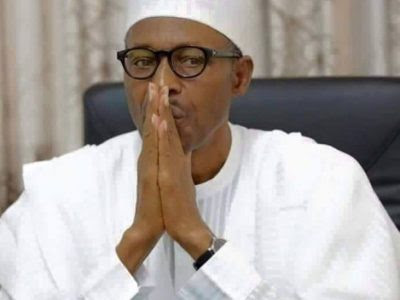
Last week Wednesday, President Muhammadu Buhari launched the
long awaited economic recovery and growth plan. In this report, JONATHAN
NDA- ISAIAH looks at the pros and cons of the plan as well as its
impact on the nation’s economy in no distant future.
It is common knowledge that the country is in recession. The manner
in which the story has been told in and around the country and even
beyond is novelty. It is a negation of the biblical analogy, “Tell it
not in Gath, publish it not in the streets of Askelon; lest the
daughters of the Philistines rejoice, lest the daughters of the
uncircumcised triumph”.
In the news, at every gathering, in public places, including, Mosque,
Church, taverns as well as in common places like the ‘Aboki kiosk’ and
‘mama put’ food joint, the story of how the country was neck deep in
recession reverberated to the extent that one could hear it resound in a
succession of echoes.
Some experts and analysts have blamed the economic downturn on the fall
in oil prices and activities of militants in the Niger Delta, while
others have maintained that it is as a result of the flip flop policies
of the federal government.
What is, however, news at the moment is that the President Muhammadu
Buhari- led administration is not resting on its oars to get the country
out of recession. A ray of hope came from this direction last week when
President Buhari officially launched the economic recovery and growth
plan (ERGP) of his administration. Not a few Nigerians considered this a
major step taken by the federal government to wriggle the country out
of the economic morass it is enmeshed in.
After all the mudslinging and negative diatribe against the current
administration by certain persons in the opposition divide who claim
this government is zero per cent in terms of the economy, it is
mesmerising to think that Buhari’s Economic Management Team led by Vice
President Yemi Osinbajo has been burning the midnight candle all in an
effort to map out a strategic plan on how to put the country back on
sustainable growth.
The team came up with a plan called the economic recovery and growth
plan (ERGP) which is designed to put the country on the path of
sustainable growth in three years. Minister of Budget and National
Planning, Udo Udoma, who unveiled the plan in February, said the plan is
designed to be national in nature and that the government has received
inputs from all segments of society and from the subnational governments
and the time frame for the plan is 2017-2020.
He explained that some of the 34 key actions selected for immediate
implementation are already yielding results, especially the reforms in
agriculture and solid minerals. He said the government will focus on
tackling constraints to growth, noting that, while the Nigerian growth
faces various supply constraints, including fuel, power, foreign
exchange and even business unfriendly regulation, this plan focuses on
overcoming and resolving these input challenges.
The minister also pointed out that the government will leverage on the
power of the private sector as economic recovery and transformative
growth cannot be achieved by the government alone. He said, “The
ultimate beneficiary of more inclusive growth is the average Nigerian
man and woman. Allow markets to function. We recognise the power of
markets to drive optimal behaviour among market participants. The plan
prioritise the use of the market as a means of resources allocation
where possible and support a more business friendly economic
environment.
“Uphold core values: The economic recovery and growth plan is rooted in
the core values that define Nigerian society and are enshrined in the
1999 Constitution, notably discipline, integrity, dignity of Labour,
social justice, religious tolerance, self reliance and patriotism”.
Udoma added that the plan which is a medium term plan is expected to
drive Nigeria to a minimum GDP growth rate of 7 per cent within the plan
period. According to him, the goal is to have an economy with low
inflation, stable exchange rates and a diversified and inclusive growth.
He listed the immediate execution priorities of the recovery plan to
include agriculture and food security, energy (power and petroleum),
small business and industrialisation and stabilising macroeconomic
environment.
“There will be a major emphasis on implementation, monitoring and
evaluation of this plan and plan to set up a specially staffed delivery
unit to drive implementation of the NERG plan”, the minister added.
Suffice it to say that the government has also made efforts to diversify
the nation’s economy from oil. The agricultural policies of the federal
government is already yielding dividends as the rice revolution is
there for all to see.
During the launching of the plan last week, President Buhari vowed to
fix the country ‘s ailing economy the way his administration has tackled
corruption and insecurity. He explained that his administration
inherited numerous challenges and his party’s political campaign was
based on a recognition of the difficult situation Nigeria was in and the
need to bring positive and enduring change. He reiterated the
commitment of his administration to fulfilling their electoral promise
to change the way of doing things and to change Nigeria for good.
Buhari said, “We are committed to delivering on the three key areas that
we promised – that is improving security, tackling corruption and
revitalising the economy. Security in the North East, and other parts of
Nigeria, is significantly better today than when we came in. With
regards to our fight against corruption, as you all know, our law
enforcement agencies are prosecuting very many cases of corruption. Our
successes in these two areas are clear for all to see.
“I want to assure all Nigerians that we are approaching the solution to
our economic challenges with the same will and commitment, we have
demonstrated in the fight against corruption and in the fight against
terrorism and militancy”.
The president noted that the Economic Recovery and Growth Plan brings
together all his administration’s sectoral plans for agriculture and
food security, energy and transport infrastructure, industrialization
and social investments together in a single document. According to him,
it builds on the Strategic Implementation Plan and sets out an ambitious
roadmap to return the economy to growth; and to achieve a 7% growth
rate by 2020.
Keen observers of the polity are of the opinion that the plan is coming
23 months late as the government should have unveiled their economic
plan immediately it came on board. The launching of the plan now,
analysts say, amounts to putting the cart before the horse.The thinking
is that a presidential aspirant would have these policies and plans
prepared and ready before contesting.
Recall that President Buhari’s government is hinged on three campaign
promises- security, revamping the economy and the anti- corruption war.
While the president has performed fairly well in the fight against
insurgency and corruption the same cannot be said of the economy.
According to some pundits, the economy recovery growth plan is no
different from the Vision 2020 and other economic plans of past
administrations. Since the administration of Tafawa Balewa, Nigeria have
always had a good economic plan and polices. The major problem is the
implementation of the plans- the political will to carry out these plans
to the letter.
It is instructive to note that Nigeria lacks the basic infrastructure
and security for a stable economic growth as these are foundations and
precursors for economic growth. 57 years later, Nigeria is still
struggling to generate 5000 megawatts of electricity. The security
indices in the last two years is not looking good either. Boko Haram
insurgents in the North East are still launching some pockets of
attacks, Fulani herdsmen are wrecking havoc in the North Central while,
Niger Delta militants are holding sway in the south East.
Keen observers hold strongly that if all these are not tackled and the
ease of doing business in the country improved, the economic plan may
just be a mirage, as no building stands without a good foundation.



